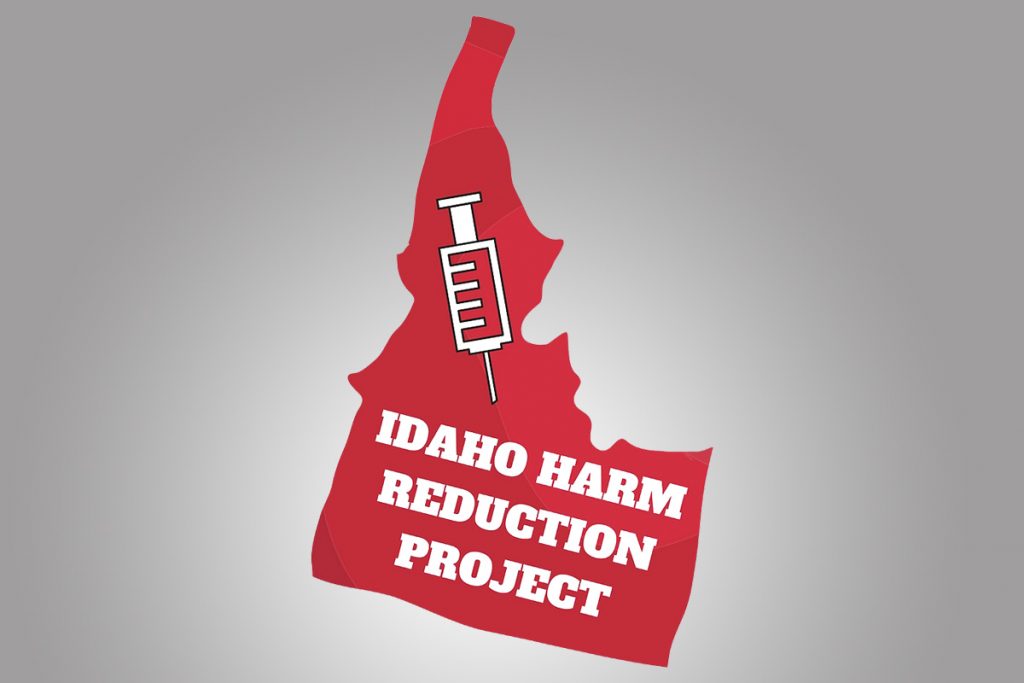The National Harm Reduction Coalition defines harm reduction as “a set of practical strategies and ideas aimed at reducing negative consequences associated with drug use,” as well as “a movement for social justice built on a belief in, and respect for, the rights of people who use drugs.”

For UW Health Services Master of Public Health (MPH) alum Marjorie Wilson (2018), harm reduction is “all about meeting people where they are, not only physically and geographically, but also in their mindset and process of change, and reducing the barriers they are facing to making the changes they want to make.”
Wilson is the co-founder and executive director of the Idaho Harm Reduction Project (IHRP), a non-profit dedicated to using advocacy, harm reduction, and evidence-based programming to promote health and safety for all Idaho residents impacted by drug use.
Wilson helped grow IHRP from humble beginnings. As she recalls, “We started in 2019 as an all-volunteer group of public health professionals who saw a gap in services for people who use drugs in Idaho. Serendipitously, as we were laying the groundwork for our organization, Idaho legalized Syringe Service Programs (SSPs), which provide free syringes to individuals who use injection drugs. A few years later, we have three full-time staff, two interns, an AmeriCorps VISTA volunteer, and many individual volunteers and supporters. We have an annual budget of over $1 million dollars from the Idaho Dept. of Health and Welfare, the Corner Family Foundation, and individual donors, which we use to provide syringe services, distribute naloxone (a medicine to reverse overdoses), offer HIV and hepatitis C virus (HCV) testing, and conduct capacity-building activities across the state.”

Although IHRP has grown significantly since its founding, there is still a clear need for increased harm reduction services across Idaho state. “There are only 4 SSPs in the state: three in Boise and one in Coeur d’Alene,” Wilson said. “This leaves a lot of folks without access to these services. During the COVID-19 pandemic, we started mailing supplies to our SSP participants, in addition to meeting them in the community. We’ve now sent supplies to over half of Idaho’s counties, and into small, remote communities that would never be able to support a full SSP, due to financial constraints, political barriers, or capacity/population size. Our organization served nearly 500 individuals last year, and we know that we are just scratching the surface of the true need in the state.”
Wilson and her team have employed novel methods to expand their outreach across the state, including via secondary distribution, which leverages community connections with people who have intimate familiarity with drug use in their communities, such as active and former users of injection drugs. IHRP is also equipping an outreach vehicle that will allow the team to do distribution in the parking lots of partner agencies, as well as offer mobile distribution and HIV and HCV testing. Finally, the group is piloting a vending machine that will distribute free safer injection supplies and naloxone, to be housed at a substance use disorder treatment provider in Boise.
This diversity of outreach methods is central to IHRP’s philosophy. “Harm reduction is not a ‘one-size-fits-all’ philosophy,” Wilson said. “It requires creative problem-solving to meet people where they are at in their substance use.”
“People who use drugs are our friends, family, and community. They deserve access to life-saving medications and safer injection supplies that prevent the spread of HIV and HCV. Harm reduction is health care, and health care is a human right.
— Marjorie Wilson
Wilson’s passion for harm reduction was sparked by a group project during her MPH training at the UW School of Public Health, when groups of students were partnered with an organization to develop a health program. “I was partnered with an SSP in the U District, along with fellow MPH students Alison Steinbacher and Ryann Milne-Price,” Wilson said. “Together, we worked on developing informational materials and referrals for people who use drugs who had active Hepatitis C and were looking for treatment.”
Wilson built upon this initial experience in her MPH thesis research with chair Helen Buckland. For this study, Wilson worked with the same SSP to learn more about what their participants would like to see in a safer consumption space (a concept wherein cities provide a designated facility for injection drug use, free from legal repercussions, and under the watchful eye of care providers, to help reduce negative outcomes, such as accidental overdose and death). Wilson’s thesis study coincided with the Seattle City Council’s exploration into implementing safer consumption spaces.
After completing her graduate training, Wilson knew she wanted to continue this work, but she also wanted to return to her home state of Idaho. “I thought the two were mutually exclusive, since there was little harm reduction activity in Idaho, and what was happening was underground,” Wilson said. “However, I presented my thesis research at the National Harm Reduction Conference in 2018, and this inspired me to move back home and start IHRP.” By a serendipitous coincidence, Wilson discovered that her two classmates from the Hep C project had also ended up back in Boise, which is Alison’s hometown, and where Ryann was doing her residency. The three reunited once again to form IHRP, with Alison as co-founder and board member, and Ryann as medical director and board member.
For Wilson, being the director of a mission-driven organization is “a dream come true.” However, in the future, she aims to do more macro-level work: teaching the next generation of social workers and public health professionals to be “more compassionate and nonjudgmental” towards people who use drugs, and advocating for policies to support them. “People who use drugs are our friends, family, and community,” Wilson said. “They deserve access to life-saving medications and safer injection supplies that prevent the spread of HIV and HCV. Harm reduction is health care, and health care is a human right. Our participants do not forfeit their right to health when they use drugs. They deserve compassionate health care services as much as anyone else.”